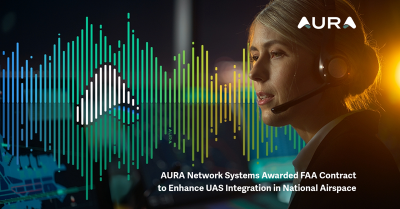Industrial inspections are typically expensive and slow tasks to perform. Companies often spend $100 million annually on inspections, and five times as much on maintenance, topping $40 billion. All of that is part of the reason that General Electric (GE) has invested in a new inspection service for the oil and gas, transportation, and energy industries. Avitas Systems is the first end-to-end solution offering enhanced robotic-based autonomous inspection with digital inspection data warehousing, advanced analytics, and intelligent scheduling integrated with GE inspection services.
Avitas Systems, based in Boston, sets to create a safer, more affordable and efficient solution to perform routine inspections. The company is working closely with GE’s Global Research Center and oil & gas business, which provides aerial inspection technology and systems expertise, and GE Ventures that provides business incubation leadership. It will also leverage expertise from the GE Store, a global exchange of knowledge, technology, and tools that drive innovation and efficient outcomes to service multiple GE businesses and customers.
The company expects to reduce inspection costs up to 25%, while providing faster and better data insights, through the use of autonomous drones, ground-based robotics, automated defect recognition, artificial intelligence and cloud-based technology,
“Unplanned asset downtime is a top issue for the oil and gas industry, and can cost operators millions of dollars,” said Kishore Sundararajan, Chief Technology Officer of GE Oil & Gas. “Avitas Systems will help enhance the efficiency of inspections, and can help our customers and others avoid significant costs by reducing downtime and increasing safety.”
Built on GE’s Predix platform, the Avitas Systems solution analyzes inspection data, integrates regulatory and external data sources, such as weather, identifies defects automatically and recommends optimal inspection and maintenance schedules. The system also features data fusion across operations, maintenance, inspection, and regulatory inputs. Furthermore, users can provide feedback to make defect detection smarter and more accurate. All of this data is accessible in real-time through an inspection platform, which also includes 24/7 live alerts to help monitor data on the go.
GE is clearly making a firm commitment to the space and technology, but there already is a likely competitor who has been conducting similar tests. IBM Corp is using its Watson artificial intelligence capability with cameras to recognize defects in electronic components zipping through assembly lines in China and Taiwan. Other projects involve acoustic sensors, or training Watson-enabled drones to spot frayed power lines on remote electrical towers. IBM and partner ABB Ltd, the Swedish-Swiss conglomerate, are combining visual inspection with ABB robots.
There are also similar solutions that use drones paired with artificial intelligence to help perform inspection tasks - such as the Neurala Brain. All of these developments provide a look at the technology that is set to transform the space in a major way.















Comments